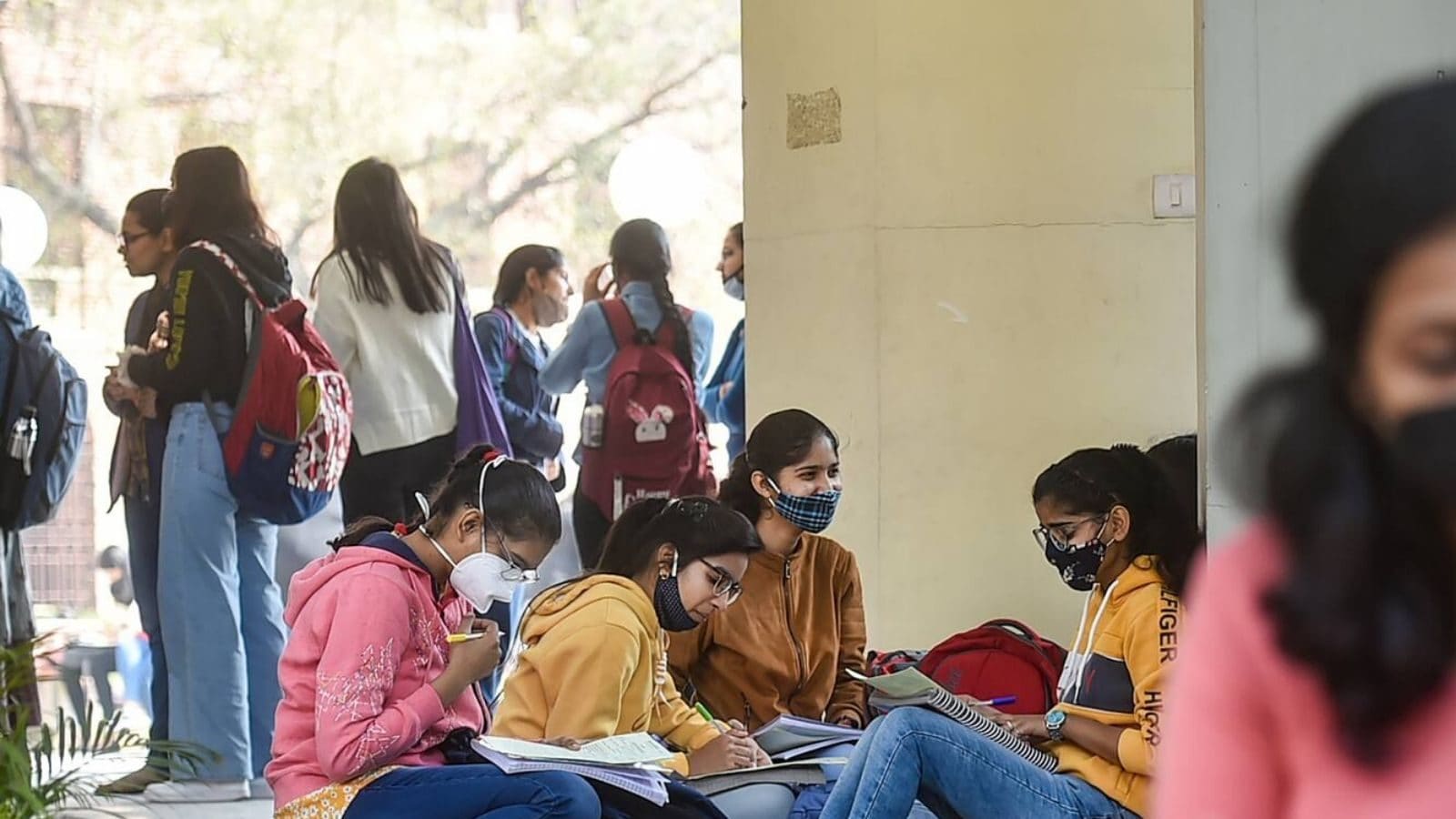The next academic year, from July 2023, for all higher education institutions, will be conducted under the newly formulated Four-Year Undergraduate Programme (FYUP) by the University Grants Commission, which will be notified today.
Undergraduate students, who enrolled this year, will be eligible to shift to FYUP from the next session, which allows greater flexibility with multiple entry and exit options within the programme, according to the draft ‘Curriculum and Credit Framework for the Undergraduate Programme’ document prepared by the UGC, which is seen by News18. The draft will be released in public domain by Monday noon, said officials.
The FYUP has been formulated in line with the New Education Policy (NEP) 2020, focusing on skill-based education and a multi-disciplinary approach along with a graded exit plan for UG students.
What are the changes under new norms?
According to the new norms, students will be awarded academic recognition based on the number of years they complete in a course.
Honours degree only on completing four years: Students will still have a choice to pursue a three-year UG course with minimum of 120 credits while they will be able to be get an honours degree only on completion of four years with a minimum of 160 credits, which was not the case under the current system, the document said. At present, honours degree is awarded on completing three years of the course.
Some institutions such as Delhi University, which adopted FYUP already from 2022 academic session, however, criticised the move and maintained that they will continue to offer honours degrees to students completing three years of undergraduate programme as before.
DU saw massive protests by students as well as faculty members in 2014 when FYUP was first proposed to be implemented under the first term of the NDA-led government. However, continued protests forced the Union government to rollback its decision.
Many other universities such as Jawaharlal Nehru University (JNU) and Lucknow University have also adopted FYUP before it is launched across the country. According to UGC officials, these institutions will have to align with their four-year programme with the one that is drafted by the regulator.
Provision for an honours (research) degree: “Students who secure 75% of marks and above in the first six semesters and wish to undertake research at the undergraduate level can choose a research stream in the fourth year. They should do a research project and will be awarded UG (Honours with Research) degree,” as per the draft.
Multiple entry/exit options: Under FYUP, each year has been divided into two semesters. If students exit after a year (with 40 credits), they will be given a UG certificate. Those leaving after two years (with 80 credits) will be eligible for a UG diploma, and those after three (with 120 credits), a Bachelor’s degree.
Students who leave before three years will be able to re-join within three years of their exit and will have to complete the degree within a stipulated period of seven years. It is only after they complete four years that students will be eligible for a Bachelor’s degree with honours or research, the document read.
Students can major in two subjects along with a minor: A major discipline is the core subject in which the student will be awarded the degree. It will contain 50% of the academic credits, whereas minor discipline is for students to gain a broader understanding beyond the major discipline. For example, a student pursuing an economics major obtaining a minimum of 12 credits from a bunch of courses in statistics will be awarded BA degree in economics with a minor in statistics. Students can do two majors simultaneously, of which, one could be online and they will be awarded two degrees, a reform which has already come under implementation from this year.
What UGC Chairperson is Saying and Other Points of Contention?
Prof M Jagadesh Kumar, who heads the UGC, said the new undergraduate structure is aimed at making students job-ready and enhance their employability, which was missing in the current structure. It will include internships, courses from other disciplines, language courses, skill courses, and a set of courses on environmental education, understanding India, digital and technological solutions, health and yoga, sports and fitness. At the end of the second semester, students can decide to continue with their chosen major or change major.
“About the honours degree, one has to see that today nearly 60% jobs depend on the credits you have, not on the nomenclature of the degree. For instance, in social sciences, we need to equip students with a skill set, which makes them ready for employment after they have an undergraduate degree,” said Kumar.
Read all the Latest Explainers here


